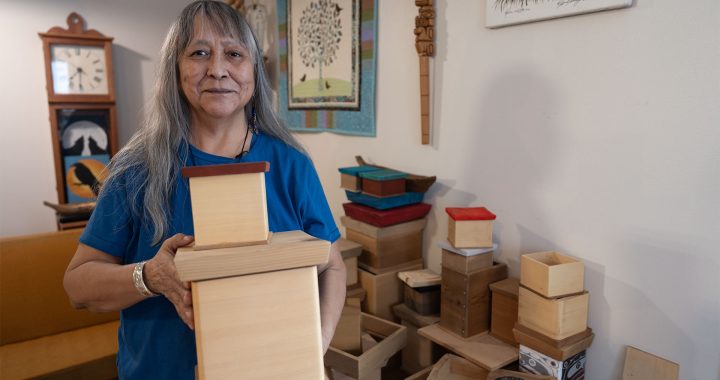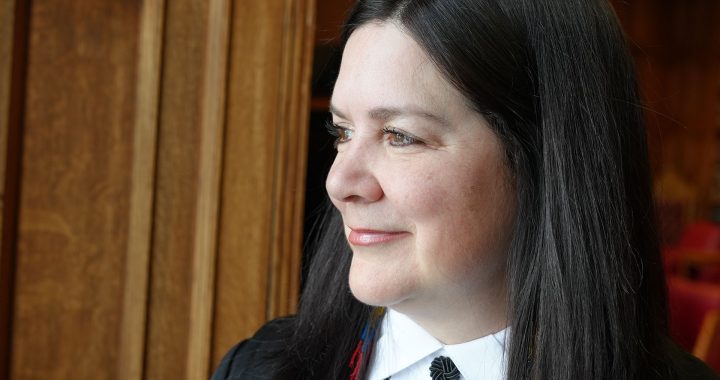
The #metoo movement has given birth to a spinoff in Canada: The #aftermetoo website.
The site, officially launched Wednesday in Toronto, was created by a Canadian charity to help people experiencing sexual harassment on the job. It provides tough love alongside support and resources.
“People who are supposed to protect you probably won’t,” proclaims the site which was funded in part by the Canadian Women’s Foundation and sponsored by various organizations including APTN.
“That’s a harsh reality, but knowing the truth about your options will help you get out of this OK.”
The information is there to guide survivors in their fight – whether they take it to the authorities or not, said Aftermetoo managing director Sue Gardner.
“We made this for people experiencing workplace sexual harassment in Canada.”
While #metoo is credited with giving survivors a voice, #aftermetoo is designed to aid them after they speak up.
“Something bad happened to you and it’s not your fault,” said the site. “Sexual harassment happens to people literally every day. You don’t deserve it.”
The site is primarily aimed at women of all races and members of the LGBTQ2 community.
“The article topics were determined by survivors themselves: Aftermetoo surveyed more than 2,000 people in every province and territory who have experienced workplace sexual harassment,” noted Gardner.
It even includes links to Indigenous-focused resources and a helpline that offers services in 13 Indigenous languages.
It highlights first-person accounts from victims – whom #aftermetoo prefers to call “survivors” – sexually harassed by bosses and co-workers.
And, it details the laws related to sexual harassment in Canada, and ways survivors can protect their careers, finances and mental health.
“We were having a normal conversation – you know, when, say, you went for vacation and you show your co-worker a cool photo from your trip or something like that,” said an account from an Anishinaabe journalist and TV producer based in Manitoba.
“He said, ‘Check this photo out.’ I took it and it was a nude photo (of him), and the way he showed me it was so natural. Almost as if it was normal to show some co-worker a photo like that, like it was a picture of his dog or something. It was very surreal.”
An Inuk woman, who said she’s harassed online all the time, finds the harassment “an extra level of creepy because it’s about being Inuit.”
“I think Inuk women get a special type of harassment,” she said in her account. “On top of the normal creepiness, there’s this extra level of exotification and fetishization of literally how you were born, which is kind of weird. It leaves a funny, yucky, gross feeling in your stomach.”
The site invites survivors to share their stories, too.
Some survivors even said they want to see the movement do more for males, such as educate men and boys about what sexual harassment is.
“Once you normalize something, it’s easy for it to just continue,” one survivor said. “So, I think it’s really important that we have education out there, not just for one gender, but for all genders, and that we continue to teach about consent.”










